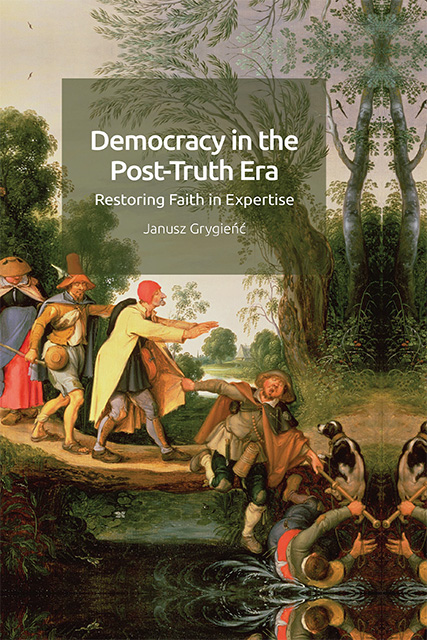Book contents
- Frontmatter
- Contents
- List of Tables
- Acknowledgements
- Introduction: Post-Truth and the Dawn of Illiberal Democracy
- Chapter 1 Expertise in Liberal Political Theory: Problems and Discrepancies
- Chapter 2 Expertise: Promises, Perils and Limitations
- Chapter 3 Laymen, Experts and Epistemic Dependence
- Chapter 4 Epistemic Dependence and Political Theory: Dependence Changes Everything
- Chapter 5 Inclusive Epistocracy, Competence and Popular Rule
- Epilogue: Living in a World of Too High Expectations
- Bibliography
- Index
Chapter 5 - Inclusive Epistocracy, Competence and Popular Rule
Published online by Cambridge University Press: 18 October 2023
- Frontmatter
- Contents
- List of Tables
- Acknowledgements
- Introduction: Post-Truth and the Dawn of Illiberal Democracy
- Chapter 1 Expertise in Liberal Political Theory: Problems and Discrepancies
- Chapter 2 Expertise: Promises, Perils and Limitations
- Chapter 3 Laymen, Experts and Epistemic Dependence
- Chapter 4 Epistemic Dependence and Political Theory: Dependence Changes Everything
- Chapter 5 Inclusive Epistocracy, Competence and Popular Rule
- Epilogue: Living in a World of Too High Expectations
- Bibliography
- Index
Summary
It seems that the notion of epistemic dependence should keep liberal political theorists and practitioners awake at night. If such dependence is indeed inevitable then democratic politics will always be faced with the spectre of manipulation, disinformation, propaganda, fabricated scientific controversies, fake news and post-truth. There is no point in waiting for better times when people will no longer trust populists. Nor is there any hope that, through participation in democratic innovations, citizens will understand the nature of the problems facing societies and states. Citizens will need to be continually redirected to true science, as opposed to pseudoscience, and persuaded that policy should be based on the findings of the former, not of the latter. The way to keep these dangers at bay is not by eliminating trolling, various abuses on social media, microtargeting or the psychological profiling of social media users. Nor will the situation be improved by better education or by setting up new channels of public debate. If epistemic dependence is an insurmountable fact, then laypeople will always be reduced to the role of passive spectators in rhetorical competitions. The vision of a political reality in which populists grow increasingly adept at exploiting this situation is so disconcerting, so at odds with the spirit of individualism and rationalism underpinning scientific and political theory, that it is the main reason why epistemic dependence is so often denied. Recognising it, we risk having to consider democracy as the most unpredictable, politically manipulable, unstable, ineffectual and irrational system of government. In such a democracy the shots will always be called by those best able to manipulate the media. Citizens will swallow almost anything provided they hear it sufficiently often, for a sufficient length of time and in sufficiently attractive form.
If the above is true, it is equally hard to make an epistemic case for representative democracy. Political representatives are just as epistemically dependent on experts as ordinary citizens. They are often experts on the legislative process, but not on the issues under discussion. Moreover, faced with a constant barrage of arguments that they do not understand, politicians are susceptible to choosing expert recommendations that best fit their own political agenda.
- Type
- Chapter
- Information
- Democracy in the Post-Truth EraRestoring Faith in Expertise, pp. 129 - 155Publisher: Edinburgh University PressPrint publication year: 2023



